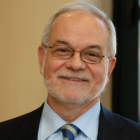Time for Philanthropy
At the Spanish Association of Foundations (AEF), we have just celebrated the 5th edition of “Demos, Forum of Foundations and Civil Society”, the reference event in Spain for the foundation sector that this year brought together professionals from all spheres ‒philanthropy, culture, science, politics and more ‒ to debate, act on and promote new approaches to respond to the most urgent needs of today’s society.
Under the slogan Time for Philanthropy, Demos, Foundations and Civil Society Forum, the event served as a meeting point for the foundation sector to rescue and reclaim the value of philanthropy. This year, in #Demos2021 we vindicated the word philanthropy from its original, ancient and broad etymology ‒ love of humanity ‒ and we re-established its place in civil society.
It´s definitely been an interesting exercise. Philanthropy has a different meaning in each imaginary: solidarity, empathy, benevolence, brotherhood… So many nuances, perspectives and opinions emerged, making the necessity of going in depth clear, and showing that philanthropy can nurture and bind the disparate aspects of our society together. This is not a conceptual matter but an opportunity to bring together civil society for a better global community. We are pleased to see the name of the merged organisation ‒ Philea ‒ representing foundations and philanthropy associations in Europe. More than a name, it reflects the diversity and the potential of our sector.
During the event, Margaritis Schinas, EU Vice-President and European Commissioner for Promoting our European Way of Life, appealed to participants to maximise the capacity of the sector and emphasised the commitment of European institutions to philanthropy, as he did, in person, at Philea’s Europhilantopics event in December 2021. His message was clear: Philanthropy is a matter for citizens and Europe has to put people at the centre.
Why it has been important to talk about philanthropy and foundations this year? The answer is simple: foundations are one of the ideal vehicles to exercise philanthropy, since they channel the resources of donors, small or large, from individuals and companies in service of the public interest and, therefore, in # Demos2021 we have talked about philanthropy in its broadest sense, from great philanthropists to modern contributions such as volunteering.
The Covid-19 crisis has, once again, stressed the sector´s capacity to respond to unknown demands. The value of working together has been demonstrated. From the perspective that Covid-19 has left us, along with all the lessons learned, it is time to encourage each of us to practise philanthropy.
During three days, # Demos2021 saw the participation of more than 50 experts from different philanthropic fields and provided an opportunity to learn first-hand several personal stories of foundations work, such as Hujjat Ghaffari, a refugee who fled from Afghanistan after the arrival of the Taliban and who is rebuilding his life in Spain thanks to the help of the Cepaim Foundation.
Not only is Demos a meeting point for the members of the foundation family, it also aspires to be a forum where the needs and demands of our sector are debated, not only within the sector itself but also with and by society. In this vein, #Demos2021 produced the Philanthropy Manifesto. “Mecenat” here and now, which follows in the wake of Philea’s Philanthropy Manifesto, and stands alongside the work that has been done by Philea since the beginning of Ursula von der Leyen period.
The Demos Manifesto is a call to the Government of Spain to expedite the reform of the Patronage Law (Ley de Mecenazgo). This is a fundamental law for our sector because it must serve to promote social participation in the general interest.
Last year, we verified the broad consensus that exists on this issue within the sector and among different political forces. However, the process in the Parliament has been blocked for months. For this reason, we believe that the reform will only go ahead if there is a clear push from the government. The patronage reform not only refers to the fiscal issue, but it also recognises that the third sector is important and is a leading actor with an essential role in the post-Covid recovery. It is the piece that completes the puzzle of the welfare state. Patronage reform cannot wait. It has to be done here and now.
I would not like to end these lines without highlighting the important numbers that support the work of foundations in Spain. In our country, the foundation sector is made up of 9,218 active foundations; employs 267,000 workers; constitutes 0.8% of GDP; makes an investment of 8.5 billion euros per year in activities; and serves 43.7 million beneficiaries.
It is difficult to find a citizen who has not benefited from some action by a foundation because the foundation sector is made up of a rich, diverse and plural fabric of organisations that are dedicated to serving the most diverse purposes of public interest.
Foundations form a formidable solidarity network dedicated to the common good: to improve the situation of the most vulnerable and of the elderly, so hit by the pandemic; to achieve the full integration of people with disabilities; to health; to research, culture, and education of the most diverse groups; to reduce the social and digital divide; to facilitate access to postgraduate studies in the most prestigious universities in the world; to promote innovation; and to support international cooperation, the environment and sustainable development.
These values are what, every year, we try to reflect in our beloved Demos, to celebrate, explore and communicate the dedicated work that we as foundations carry out.
Authors

